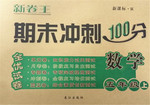题目内容
A
In my junior year of college I came to a university in Madrid,Spain. The experience of studying abroad has changed my life greatly. Here is how.
My Spanish phone has no access to the Internet. It isn’t easy for me. But without Google to answer my questions,I often ask my teachers for help. When I need directions,I look up at street signs instead of looking down at my phone. It turns out that I have absorbed more when my eyes aren't glued to my screen.
In my hometown,if I wasn't in a quiet library,I could not focus on studying. However,here,without a library nearby,I have to find other locations to study. I choose to study in the darkest comer of a cafe,determining to stay away from anyone who wants to chat. As time goes by,I’ ve become habituated to the laughter and light. Now when I face a problem,an encouraging smile is all I need to get back on track. What starts off as a method of survival has changed into a love of cafes and the ability to work anywhere.
My freshman year of college was a race to find friends. I worried if I didn't immediately join a group,I would be alone for the next four years. In fact,relationships have developed more naturally abroad. With wonderful friends waiting for me back in Atlanta,I feel no pressure to make as many friends as possible. If I discover someone isn't my cup of tea,no sweat; I have the freedom to develop quality over quantity.
Before a family or school trip,my mom used to plan every detail. But in Madrid,every aspect of the trip—transportation,lodging activities,and food — is my responsibility and anxiety runs high. But while I lose a peaceful pre-trip night of sleep,my uncertain adventure is well worth the price. Traveling on my own gives me a cultural awareness that I would never understand when I blindly followed someone else's plan. I am a traveler and the trip is my own.
1. When the author is studying in Madrid,he .
A. often goes to the library
B. Seldom relies on technology
C. hardly ever asks others for help
D. sometimes gets lost when he is alone
2. The underlined part “ become habituated to ”in Paragraph 3 probably means.
A. kept away from B. got interested in
C. thought poorly of D. got accustomed to
3. How does the author react now if he doesn't like someone that much?
A. He chooses to go away.
B. He tells the person his real thoughts.
C. He misses his old friends even more.
D. He still keeps the relationship now and then.
4. Compared to the past,now the author is most probably.
A. more caring B. less easy-going
C. less confident D. more independent
A篇
作者去西班牙求学后,有了很多变化。
1. B.细节理解题。根据第二^中的But without Google to answer my questions,I often ask my teachers for help. When I need directions,I look up at street signs instead of looking down at my phone 可知,作者很少依赖科技产品。
2. D.词义猜测题。根据第三段中的What starts off as a method of survival has^ changed into a love of cafes and the ability to work anywhere 可知,作者现 在己经“习惯于”那里的笑声和光线了。
3. A.推理判断题。根据第四段中的If I discover someone isn’ t my cup of tea,no sweat; I have the freedom to develop quality over quantity 可推知,如果作者发现自己不是很喜欢某个人时,他会选择离开。
4. D.推理判断题。根据末段中的every aspect of the trip —transportation,lodging,activities,and food — is my responsibility and anxiety runs high 以-及Traveling on my own可推知,和以前相比,作者更独立了。

 课程达标测试卷闯关100分系列答案
课程达标测试卷闯关100分系列答案 新卷王期末冲刺100分系列答案
新卷王期末冲刺100分系列答案 全能闯关100分系列答案
全能闯关100分系列答案